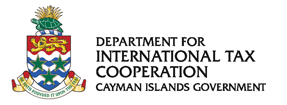Industry is advised that the Ministry of Financial Services is addressing a number of matters in the coming days as part of its business continuity plans in the face of the coronavirus (COVID-19) pandemic.
VIRTUAL ASSETS AND ADMINISTRATIVE FINES CONSULTATIONS EXTENDED
A pair of consultations, one relating to virtual assets service providers (VASPs) and the other dealing with administrative fines to support anti-money laundering legislation, will offer more time for feedback.
Virtual Assets
For the VASPs consultation, the focus is on the development of a regulatory framework for VASPs, with an outline of the proposed framework as well as a number of relevant bills provided for industry participants to review. The consultation began on Wednesday, 11 March and will now conclude on Wednesday, 8 April.
The framework is based on anti-money laundering, countering terrorist financing and countering proliferation financing recommendations adopted in 2019 by the Financial Action Task Force (FATF) and subsequently its regional body, the Caribbean Financial Action Task Force, which reviewed Cayman’s AML/CTF/CPF framework last year. Furthermore, the framework addresses the need to provide additional regulatory measures for certain virtual asset activities taking place in the jurisdiction, and the inclusion of a regulatory sandbox.
CIMA Administrative Fines
Regarding the administrative fines consultation, the focus is on the proposed Monetary Authority (Administrative Fines) (Amendment) Regulations, 2020. The objective is to ensure that there is a range of effective, proportionate and dissuasive sanctions in effect that aligns with FATF recommendations. The consultation, in its third edition, will now conclude on Monday, 6 April.
In regards to the specifics of the consultation, the draft regulations seek to extend the administrative fines regime to incorporate breaches of the regulatory laws and rules established by the Cayman Islands Monetary Authority, the jurisdiction’s chief financial services regulator. The proposed amendment also adds a third column to Schedule 1 of the Regulations, which will provide clarity on the prohibited act that is being penalised and the person to whom the sanction applies.
BENEFICIAL OWNERSHIP FILINGS HAVE ONE-MONTH EXTENSION
The General Registry is giving a one-month extension for beneficial ownership (BO) submissions in the face of the coronavirus (COVID-19) pandemic.
The extension goes into effect as of Monday, 23 March and will cease on 20 April. Registry recognises that COVID-19 affects the ability of corporate service providers (CSPs) to retrieve information from their overseas clients. However, Registry also notes that BO submissions are vitally important for the long-term standing of Cayman’s financial services industry.
In the coming weeks, Registry expects Government’s BO digital platform to come online and for CSPs to transition to making electronic filings. If there are any further delays, industry will be notified of the next steps.
FILINGS FOR ENTITY CHANGES EXTENDED, ECONOMIC SUBSTANCE OBLIGATIONS CONTINUE
The Registrar of Companies (ROC) will be instituting some temporary measures to assist with entity changes, while the Department for International Tax Cooperation (DITC) is reiterating economic substance obligations.
Entity changes
Extensions for 30 days will come into effect for director and officer changes, and for registered offices changes and amended memorandum and articles of association (including increases in share capital). These extensions to file pertain to changes which occurred on or after 1 March 2020. Filings will not incur penalties before 30 April 2020.
Economic Substance Obligations
As for the economic substance (ES) requirements, the DITC is aware that COVID-19 may impact travel in 2020, which may in turn affect the ability of some entities to hold their board of directors meetings in Cayman during the year. However, industry is reminded that the directed and managed requirement is only one element of the ES test; the entity is also required to conduct core income generating activities (“CIGA”) in relation to its relevant activity.
Where the board of director meetings are required to be held virtually during this period of uncertainty, the DITC will take that into consideration on a case-by-case basis when determining whether an entity has passed or failed the ES test in its reporting, which is due in 2021. Finally, industry is reminded that this would not affect the reporting requirements due this year which are for the 2019 year-end.
With regards to FATCA/CRS reporting and ES reporting, as previously advised, the DITC does not currently propose to make any changes to previously announced deadlines. However, the DITC is monitoring the international landscape carefully and will consider any appropriate adjustments in the event that applicable international deadlines are modified.
MUTUAL FUNDS REGULATIONS TAKE EFFECT
The Mutual Funds (Annual Returns) (Amendment) Regulations, 2020 is now in effect after being gazetted on Tuesday, 17 March.
The regulations improve the data collected from each regulated mutual fund by the jurisdiction’s financial services regulator, the Cayman Islands Monetary Authority (CIMA) and enables CIMA to enhance their regulatory oversight of the financial services sector.
The gazettal of these regulations is part of Cayman’s efforts to modernise its funds regime. Several pieces of legislation have been passed over the last two years to bolster the regulatory framework and respond to the CFATF (Caribbean Financial Action Task Force) review of our anti-money laundering, countering the financing of terrorism, and countering proliferation financing (AML/CFT/CPF) regime.
The CFATF published its report on Cayman’s regime in March 2019 and gave Cayman an observation period, which ended in February 2020, to correct strategic AML/CFT/CPF deficiencies. The CFATF is the regional body that monitors compliance with the global AML/CFT/CPF regulatory standards set by the Financial Action Task Force (FATF).

